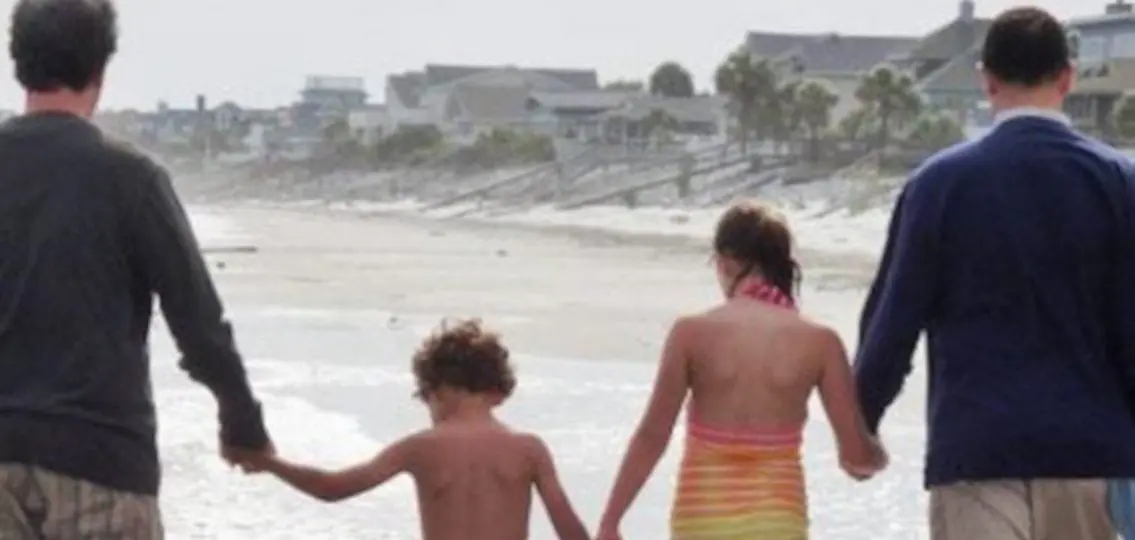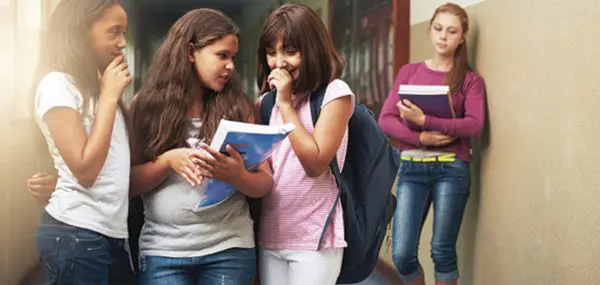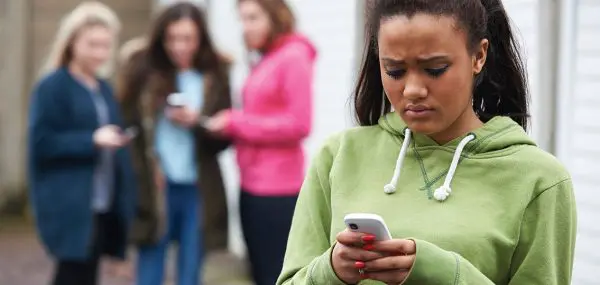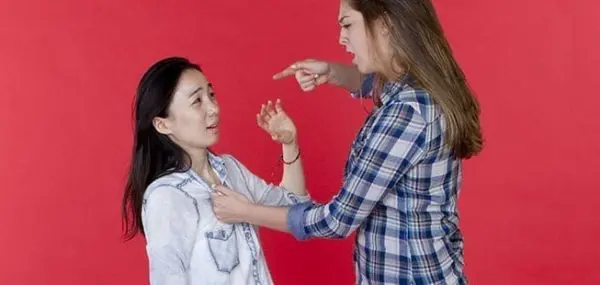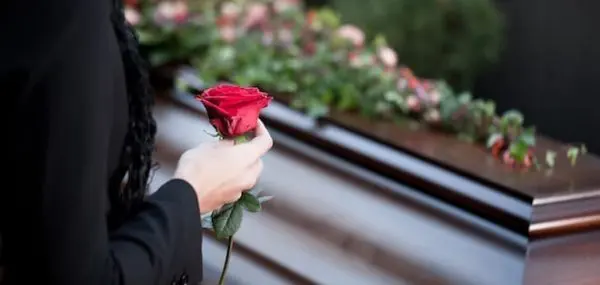What happens when a teen feels one way about a particular issue and the parent has a different take. At Your Teen, we understand that sometimes you need to look at a situation from multiple perspectives. It can also be helpful to hear from a neutral third party. That’s when we bring in a parenting expert to provide the practical advice.
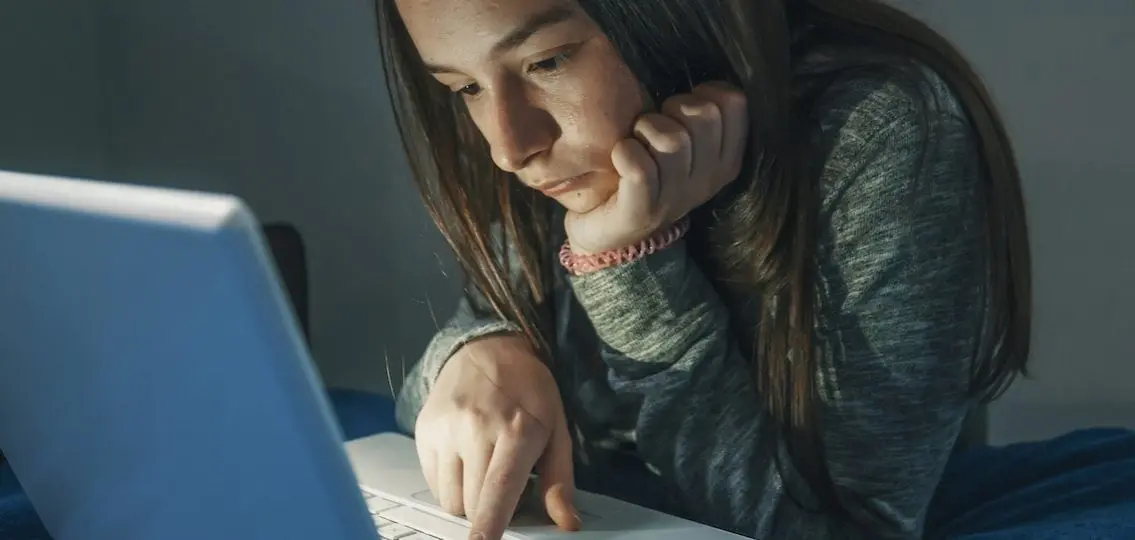
In this case, a dad and his daughter reflect on their experiences fitting in as teens, and our expert provides some additional context and wisdom.
PARENT | William Lucas Walker
The original Planet of the Apes hit movie screens 50 years ago. Like every other sixth-grade boy in America, I lined up for tickets the day it opened in my town. And like every other sixth-grade boy in America, once the movie was over, I found myself staggering out onto the sidewalk, my mind blown entirely.
Unlike my peers, however, I was not responding to the famous shocker ending. I was actually reeling from a scene much earlier in the film: the sight of Charlton Heston stripping out of his spacesuit, diving naked into a lagoon, then running around for the rest of the movie in a strip of leather the size of a Kleenex. I’d never seen a grown man naked. I liked it.
I’d gone to the movie expecting apes, not a sexual awakening. Stumbling back into the daylight, three things became clear to me:
1) I was not like every other sixth-grade boy in America.
2) I could never tell anyone why.
3) I needed to see this movie about a thousand more times.
It was 1968. I was 12. There were no road maps or paradigms for moving forward with what I’d just learned about myself. No support groups, no internet, no Will & Grace, no Ellen. There was only instinct. The instinct to hide.
As I moved into high school, I began to realize there were other boys like me. In classrooms, hallways, and locker rooms, we were able to spot one another, recognizing the shared look of terror lurking behind each other’s eyes. We knew enough never to speak of it, our radioactive secret. We rarely became friends. Too dangerous.
We had all wanted the same future as most of our peers: marriage, children, security, and the love of our families. But it felt as though our bodies had betrayed us, making such a life seem impossible.
I’m sure I wasn’t the only one who burrowed in that dark corner of the library, nervously thumbing through the dictionary in search of its scariest entry: homosexual.
The definition was short, clinical, and damning. As if, like us, it would have preferred not to be found there. In 1968, its real-world meaning could not have been more clear: You are a sin, a mistake, a crime. Keep quiet.
Even today I remember their faces, those boys “like me.” Many never made it past their 20s, the weight of our shared secret taking them down by alcoholism, drugs, AIDS, or suicide. Others survived by hiding in plain sight, marrying women, and passing for straight.
I knew that to save myself, I had to get out of there. So, like Charlton, I boarded a spaceship to the future. It took decades, but I finally landed on a planet I could never have imagined as a teenager. Okay, I didn’t find my husband skinny-dipping in a lagoon. Shocker ending: We found each other at church.
For the past 19 years, we’ve built a flourishing life and family together, raising a son and daughter who—so far—appear to be gender-conforming heterosexuals.
But that’s their struggle.
William Lucas Walker was born and raised in Clinton, South Carolina. He lives with his husband and family in Hollywood. His writing credits include The Huffington Post, as well as the television series Frasier, Roseanne, Will & Grace, and The Chris Isaak Show.
TEEN | By Elizabeth Walker-Ziegler
My high school experience has been completely different from my dad’s. Growing up in Los Angeles, I have been exposed to all religions, races, sexualities, and economic backgrounds. My dad grew up in a small town in South Carolina. Most of my family still lives there, so we visit frequently.
I’ve realized that big cities—not the whole country—are the actual melting pots of America. Compared to Los Angeles, I’ve observed that small towns typically are not represented by diverse or accepting populations, but I think that is changing with the most recent generation.
Throughout my childhood and adolescence, I have learned that differences are something to be celebrated, not disrespected.
I go to an all-girls Catholic high school. Catholic schools typically have the reputation of having conservative minds and uniforms. At my school, these stereotypes do not apply. We have always been referred to as the “progressive school”: We are very focused on social justice and equality for all, and our morals are high—much like our skirt length.
My school is made up of all races, religions, and sexualities. It is extremely supportive of students with transitioning gender identities. So, yes, at an all-girls school, some of my closest friends are guys.
As the daughter of two gay dads, I expected to be bullied at my school. Instead, my friends approached the situation with a lot of curiosity and excitement, which slowly grew into them being more interested in my parents than me at times.
One of the major differences I recognize between my parents’ high school experiences and mine is how much more accepting my generation is, not only in Los Angeles, but also throughout the country.
In South Carolina, one of my cousins stood up for a gay classmate who was being bullied for his sexuality. Afterwards, my cousin organized an assembly and invited my dad (his uncle) to speak. My dad talked about growing up in South Carolina, coming to terms with his sexuality, and his subsequent success as a gay man and father.
I know that definitely would not have been how a bullying situation was handled when my dad was growing up, and I’m proud to know that people like my cousin are making their difference in other parts of the country.
Though it is easier and more accepted to be different in my generation, social media has created a new obstacle for us. We’ve come a long way from what my dad experienced, but my generation has our own social barriers due to cyberbullying.
I’m not dealing with the same issues as my dad did, but social media has in some cases become as dangerous as the hallways my dad used to walk.
It’s difficult for me to be my full, authentic self online. At school, it is super easy to be me because I am around all of my friends and everyone I know. But what I put out on social media is a filtered, more refined version of myself. It’s easy to become a little self-conscious since I’m literally on display for millions to see, and sometimes I feel different too.
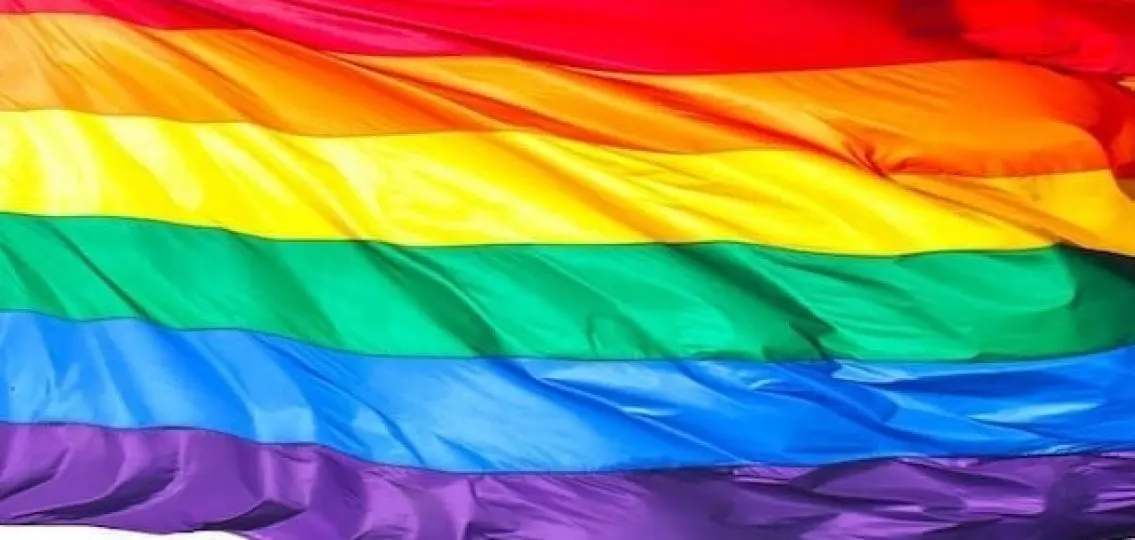
So, there has been both progress and new setbacks for today’s high-schoolers. Social media has some negative effects, but I’m still thankful that it created a platform that makes it possible to share what makes each person unique all over the world. And I am proud to be part of a generation that is more celebrating of diversity.
Elizabeth Walker-Ziegler is a high school senior in Los Angeles, where she plays varsity volleyball. Outside school, she works as a babysitter, academic tutor, and summer camp counselor-in-training. In her free time she enjoys eating Takis and watching reality TV.
